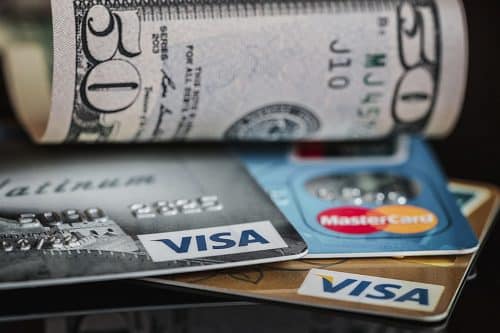Advertisements
The summer before your freshman year in college means choosing classes, checking your future roommate's Instagram, and figuring out how you're going to pay the bills. You will probably need a student loan: 2 out of 3 students are in debt when they leave school, according to the Institute for College Access and Success's 2017 graduation date. But consider a loan after you've accepted grants, scholarships, and work-study. You can get them by submitting the Free Application for Federal Student Aid, or FAFSA.
Here are things to know to get your first student loan.
Advertisements

1. Opt for federal loans over private
There are two main types of student loan: federal and private. Get federal loans first by completing the FAFSA. They're preferable because you don't need a credit history to qualify, and federal loans have income-based repayment plans and forgiveness that private loans don't.
Advertisements
Take a private loan only after you maximize federal aid.
2. Borrow only what you need and can reasonably repay
Undergraduate students can borrow up to $ 12,500 annually and a total of $ 57,500 in federal student loans. Private loan borrowers are limited to the cost of attendance (tuition, fees, room, board, books, transportation, and personal expenses) minus financial aid that you do not have to pay.
3. You will pay fees and interest on the loan.
You will owe more than the amount you borrowed because of the fees and interest on the loan.
All federal loans require you to pay a loan fee, or a percentage of the total loan amount. The current loan rate for student loans direct for university students is 1.062%.
You'll also pay interest that accrues daily on your loan and will be added to the total amount you owe when repayment begins. Federal college student loans currently have a fixed rate of 5,05%, but it changes every year. Private lenders will use your or your co-signer's credit history to determine your rate.
4. Once you accept the loan, your school will take care of the rest.
Your loan will be repaid to the school after you sign a promissory master note agreeing to repay it.
"All money will be sent to and processed through the financial aid office, whether it's a federal or private loan, and will be applied to the student's account," says Joseph Cooper, director of Michigan Technical's Center for Student Financial Services. University in Houghton, Michigan. Students are then refunded any money left over to use for other expenses.
5. You can use the loan money only for certain things
the money of student loan it can be used only for education-related expenses.
"It can't be used to buy a car," says Robert Muhammad, director of the office of scholarships and financial aid at Winston-Salem State University in North Carolina. "It's specifically for educational purposes: books, clothing, anything that is specifically tied to the pursuit of your education."
You can't use your loan for entertainment, takeout, or vacations, but you must use it for transportation, groceries, study abroad costs, personal supplies, or off-campus housing.
6. Find out who your administrator is and when payments start
If you take federal loans, your debt will be turned over to a servicer student loans hired by the federal government to manage loan payments. If you have private loans, your lender may serve as your servicer or similarly transfer you to another company.



